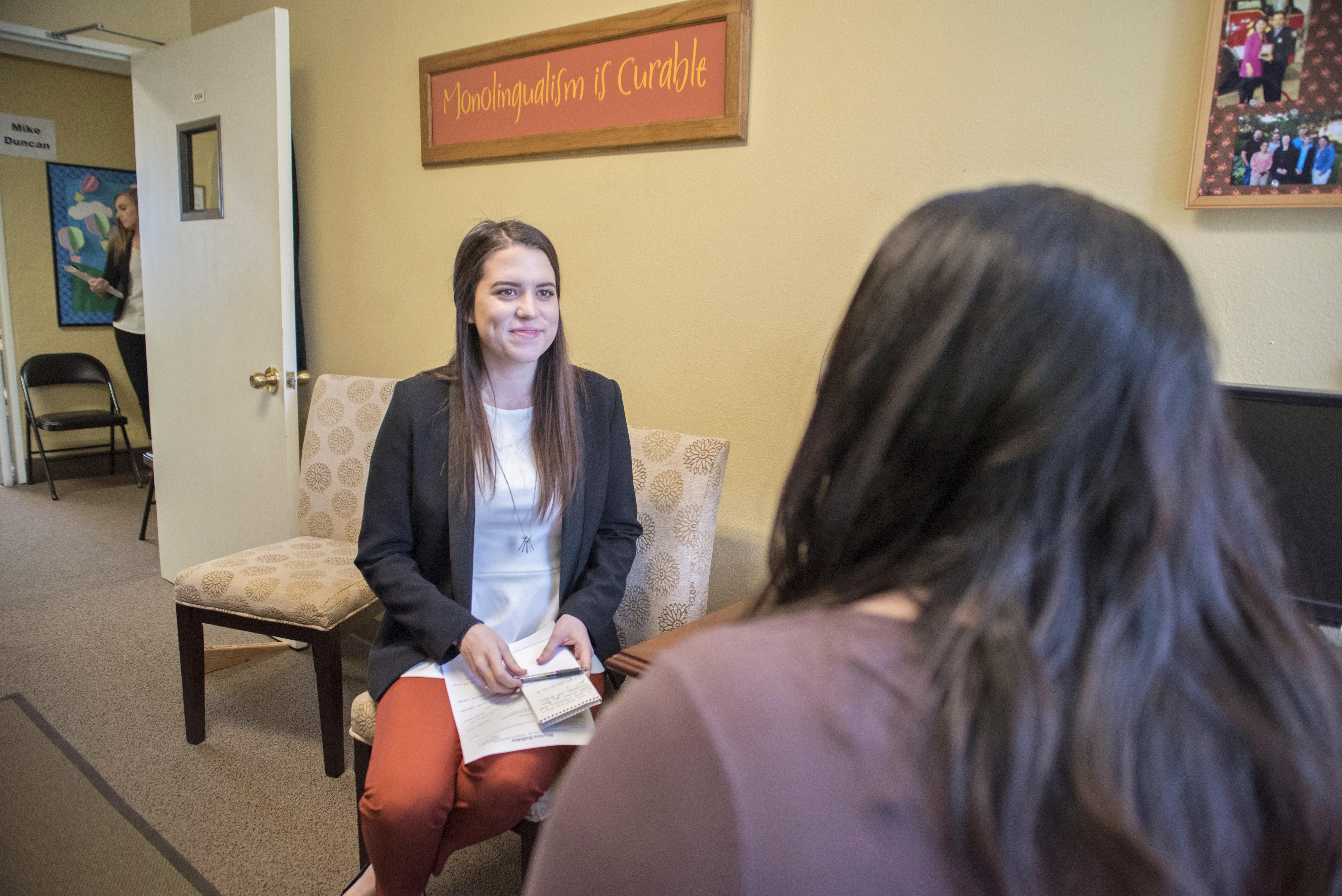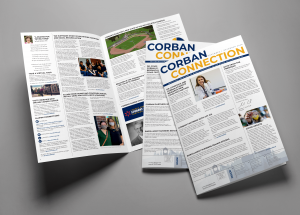Career Services Offers Creative Support
“Career Services helps to open doors for students that potentially would not have been opened for them,” says Director of Career Services Steve Reed. “Students can come in and receive personal attention, career counseling, and help to create a path and plan for them while they are here, rather than waiting until their senior year to decided how to leverage their major.”
While the job could seem very technical from the outside, Reed’s primary focus is on relationship building, both with students and prospective employers. “For students, the first step is communicating that there is a resource available for them,” Reed says. “We want to help them find what they would love to see themselves doing in 20 years and build back from that when they’re freshman.”
To help students realize their career goals, the Career Services Department has gone to great lengths to develop tools and approaches to help confront new and evolving challenges for today’s students. But the core of the job remains unchanged.
“One of my main jobs is helping students to not be afraid,” says Reed, who can still remember his own time at then Western Baptist College, when Professor Jim Hills did the same for him. “We try to help students understand that having a plan and not knowing where that will lead specifically is not a bad thing. Very few people know exactly what they want to do at this age. It’s ok to be in that space. We can help them through their fears while also giving them an actionable plan.”
When the pandemic hit, Reed remembers confronting his own fears. “It was a scary time, that’s for sure,” he says. “I didn’t know how I would be able to provide for these students.” Since Reed also owns two local small businesses, the pandemic pressure felt magnified. With the conventional means of operation dried up; job fairs, internships, active hiring inquiries from employers, Reed knew he had to pivot.
“It became a question of ‘how can I think outside the box?’” he says. “I knew I had to figure out other avenues and other ways to help students that haven’t been done before, and I don’t know that I’ve come up with a grand solution to that, but I began to recognize I have to think differently.”
Reed began to ramp up their career counseling focus and opportunities and put specific emphasis on reaching students during their freshman and sophomore years, and even working with prospective students. “It’s a very competitive market. I believe our students need to be even more prepared than they have been in the past,” Reed says. “If we can make sure that our students have their resumes polished, that they have completed all of their internships and are qualified and ready to go, they will have a leg up.”
Another critical addition came in January as Career Services launched their new Handshake tool, a modern digital platform to assist students through these detached, difficult, and constantly changing times. “Our Handshake tool allows our students to create an online profile that connects them directly to potential opportunities while employers can also build a profile on this tool and seek out Corban students first,” says Reed. Currently 85 percent of students are set up on Handshake and more employers join each day. Reed hopes to see that number stretch to 100 percent in the coming months.
This tool has allowed Reed to build new connections with employers, often giving Corban students the first shot at new job opportunities. It also provides resources and guidance through critical job preparation phases like resume building and interview preparation so that when opportunities do arise, Corban students will be prepared to take full advantage of them. It’s just one of the creative ways Career Services is adapting to meet students’ needs. “We are helping them to reevaluate and identify new opportunities and to join us in thinking creatively,” says Reed. “We want to help them find what they would love to see themselves doing in 20 years.”
Reed also sees the job market beginning to think creatively in offering solutions. “A lot of new industries are popping up in direct response to the pandemic. I’m not the only one who is having to think outside of the box,” he says. “There are certain job opportunities that were nonexistent before that now flourish.” And Reed has found himself introducing students to new opportunities that he may have never considered before.
Most importantly, Reed sees reasons to hope. The value of a college degree is being proved out in its ability to offer increased opportunities and added resilience for workers during the most difficult of times. And similar resilience is being displayed in our local economy. “Even through the lockdowns, businesses and employers were fighting to provide opportunities for others to work and earn a living,” says Reed. “I see a recovery of the job market because of that. I don’t know to what degree or what the timeline will be, but I have hope because I saw the response during the worst of times.”
Reed and his Career Services team continue to confront challenges head on, modeling the resourcefulness, creativity, and determination they hope to help foster in the students who come to them looking for help. “We are going to be able to provide for our students. It may look a lot different than what we anticipated when they first started at Corban University, but helping students navigate the changes in the job market is a part of the job too,” he says. “It’s my prayer that we can help students walk away with a broader understanding of what’s available and the confidence in their ability to take advantage of their opportunities.”


